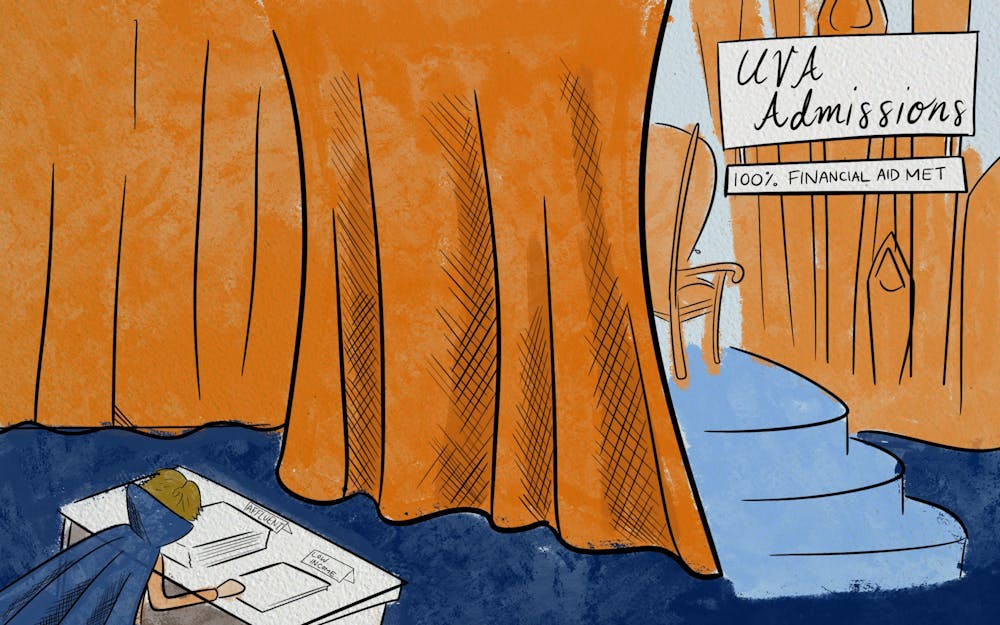Education reform is a hot button topic in legislative bodies across the country, but it is often discussed without any commitment to tangible change. Due to this lack of legislative action, reform occasionally sprouts from the courts instead of legislatures. Such an instance is currently underway as a lawsuit against elite institutions across the country alleges that many universities have been abusing a legal exception in order to avoid paying out as much financial aid as they should. As the guarantee of need-blind admissions across the country is being cast into doubt, it has become necessary to examine our own financial aid system at the University. Even though the University is not targeted by the lawsuit, the implications and revelations of the lawsuit should inspire greater transparency at the University in order to ensure that financial aid is properly and equitably distributed.
Legally, universities are permitted to collaborate on how they calculate financial aid for the purpose of achieving consistent calculation methods across schools. But they are forbidden from taking a students' financial needs into account when admitting students. Doing so would give admissions offices at universities the discriminatory power to avoid admitting students who would cost too much in financial aid. However, the recent lawsuit mentioned above alleges that some elite private institutions colluded in using their financial aid calculations in a way that prioritized wealthier students, instead of only colluding to make the process more reliable for students and more efficient for colleges as the law permits. This is in contrast to their legal responsibility — simply distributing aid to students already admitted.
And based on these schools’ behavior, it appears these universities were caught red handed. Dartmouth and Northwestern, among many other high-caliber universities, recently paid out. The University of Chicago and Rice University also settled for $13.2 million and $33 million respectively. The sheer number of schools settling and for such high amounts is indicative of an institutional failure within higher education to equitably deploy financial aid calculation methods. It should be abundantly clear that change is desperately needed within the admissions and financial aid systems of higher education institutions.
Although the University was not explicitly challenged by this lawsuit, the same scrutiny deployed at other prestigious universities should also be used here. This will help the University to ensure that fair practices are maintained preemptively instead of correcting after illegal behavior occurs. This scrutiny is particularly relevant here because the University has already struggled to diversify its student body across economic backgrounds. Despite providing and advertising bountiful student aid packages, the University continues to rank last out of all state flagships in relation to economic diversity. Despite the University’s verbal commitments to diversity, it is clear more action is needed.
Although President Jim Ryan has done great work to make financial aid more robust nominally, the University has a long track record of avoiding transparency in the financial aid process. When it was discovered in 2022 that only nine percent of colleges reported accurate financial aid packages, more than 360 colleges pledged to make the financial aid process more transparent and share more intricate details about their financial aid packages, including what types aid these institutions offer and in what proportions. These colleges also pledged to publicize information about how their institutions’ payment plans work more generally.
The University was not one of these colleges. While the University’s nominal commitment to financial aid is laudable, a notable lack of transparency in financial aid makes it difficult to be confident that the financial aid office practices what it preaches. When examining this lack of transparency alongside a lack of economic diversity, it is not difficult to conclude that there must be a connection. The University, left to its own devices, has not been committed to making tools in the financial aid process accessible to the disenfranchised. Simple trust is not enough. Outside evaluation is key to safeguard the ethical decision making that ensures equity remains at the forefront of our financial aid practices.
Obviously, complete transparency in financial aid is not possible. If students knew every part of the financial aid system, then the office of admissions would be flooded with near-identical applications catered specifically towards what applicants believe colleges want to see. However, there are not merely two extreme options — complete transparency or complete secrecy. Colleges should be more than capable of releasing more detailed analysis of their financial aid processes without disclosing critical information. In this way, they can provide necessary information that would benefit students while also preventing the pitfalls of complete transparency.
It is no longer enough to take colleges at their word because the trust between administration and student bodies seems to have been broken across the country. In the wake of this fracture, the University can and should take the first steps toward making currently convoluted systems more transparent and digestible for the public. Releasing more comprehensive data on aid, breaking down types of aid and making calculations accurate would not reveal exactly how decisions are made, but they would ensure that the outcomes of decisions could be analyzed for unethical activity. Through this, the University would be able to submit itself to informal public review, ensuring protection for low-income applicants in the future. The University should make a point to stand away from the crowd by pulling back at least a portion of the curtain that veils financial aid and admissions.
Paul Kurtzweil is a senior associate opinion editor who writes about economics, business and housing for The Cavalier Daily. He can be reached at opinion@cavalierdaily.com.
The opinions expressed in this column are not necessarily those of The Cavalier Daily. Columns represent the views of the authors alone.







